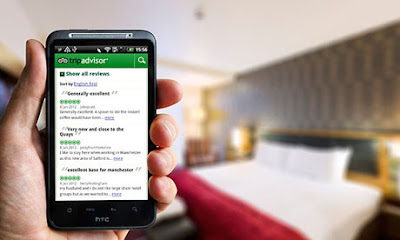Brands no longer control the message, consumers do
"We believe the Internet has forced transparency upon brands and businesses. Brands no longer control the message, consumers do."
That's one of the central ideas of the Modern Marketing Manifesto, published by Econsultancy, a UK-based digital marketing and commerce consultancy, and Marketing Week magazine, in May 2013.
More than 300 marketers have signed the manifesto to date, including representatives of consumer packaged goods giants Unilever and Pepsico.
Digital marketing, it seems, is evolving rapidly into "customer-led conversations", on the basis that, increasingly, it's not what a company says about its own products and services that matters today, but what customers say.
Today's social media listening tools allow marketers to track and respond to conversations wherever they take place, from social media sites like Facebook and Twitter, to customer forums hosted by the business itself, or forums run by enthusiast groups, or reviews on retails sites like Amazon.
Internet and catalogue clothing retailer Boden has run customer reviews of its products on its site since 2009. Over that time, it has collected 270,000 reviews, according to marketing director Mark Binnington. To date, the current Spring/Summer 2013 collection has attracted 80,000 reviews.
"We take this customer feedback very seriously," he says. "We have a team of people who read all of our reviews and take this feedback into account when putting together forthcoming ranges."
Some retailers believe that customer reviews increase the propensity to buy, luring those who are just browsing into making purchases. At Argos, for example, multi-channel operations manager Jim Bassett says that customers who read reviews show a 50% higher conversion rate than those who don't.
But what if reviews are less than complimentary about a particular product or service? That's not important, says Binnington. What counts is authenticity.
"Reviews are only valuable to customers if they are 'real'. If you post only good reviews, customers won't believe them. Obviously, we hope they like [our] products, but we also want to hear if they don't."
Thus, in the case of Boden's "Canonbury" coat, one reviewer describes the material as "stiff and cheap-looking" and the fit as "shapeless and unflattering". Another says: "I feel great in this wherever I go. It makes me smile."
Yet the fear of criticism is still the most common reason given by companies that don't offer customers the chance to review products or services online, according to Scott Anderson, vice president of marketing at Bazaarvoice, a US-based company that hosts and moderates online reviews for retailers including Argos, Marks & Spencer, Sainsburys and Next.
It's short-sighted at best, he says. "Guess what? That's the world we live in today," he says. "People have views and they express them online." If they are not posting comments on a retailer's own website, he adds, they're almost certainly doing so on other social networks, such as Twitter and Facebook.
"Just because your brand chooses not to pay attention to criticism, it doesn't mean that negative reviews are not happening. It just means that your brand doesn't benefit from them." This is the way that valuable opportunities to improve products or pacify disgruntled customers are lost, he says.
Digital consultant Martin Belam of Emblem urges caution: "Only a small set of internet users will ever comment or leave a product review. And you have to think, what are the occasions that have ever made you write to or phone a company? Usually it's when you're really angry about some bad treatment," he says.
The legitimacy of online reviews is another concern. Just last month, hotel chain Accor's Asia-Pacific general manager of communications, Peter Hook, was placed on leave of absence after it was discovered he had anonymously posted more than 100 reviews on Tripadvisor, praising Accor's own hotels and lambasting those of its rivals.
At TripAdvisor, global director of communications Angus Struthers insists that "nothing is more important" to the company than the legitimacy of reviews. Users and hoteliers are actively encouraged to report suspicious content and hoteliers can publicly respond to all reviews posted, he says.
Since there are an abundance of third-party forums, does it pay for a business to run its own customer forums? It may do. A company-owned forum adds authority and brings moderation under full control. Another benefit is that the community becomes a knowledgebase for others with similar questions, pre-empting support calls.
Running a forum is not a trivial exercise though. The business will be judged by the speed and helpfulness of its responses, and active moderation is unavoidable.
Online conversations take place anyway, whether or not brands choose to host them. The choice today is not whether customers talk about products online, but how brands choose to interact with them - and businesses that get this right win a significant advantage.




Comments
Post a Comment